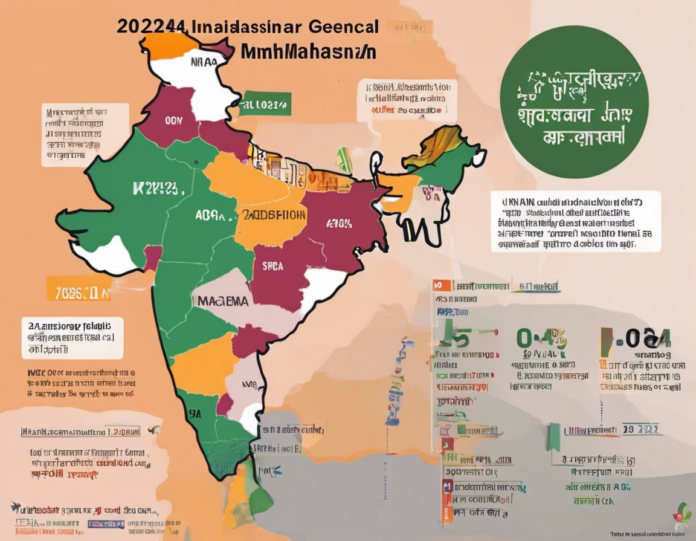In the vibrant and diverse political landscape of India, elections play a pivotal role in shaping the future of the country. One of the key states at the forefront of these political machinations is Maharashtra, a state known for its rich cultural heritage, economic prowess, and diverse demographics. With the 2024 Indian General Election on the horizon, all eyes are on Maharashtra as political parties gear up for what promises to be a fiercely contested battle.
Historical Context
Before delving into the intricacies of the upcoming election, it’s crucial to understand the historical context of Maharashtra’s political landscape. Maharashtra has been a stronghold of several prominent political parties, with the Indian National Congress, Bharatiya Janata Party (BJP), Shiv Sena, and Nationalist Congress Party (NCP) being major players in the state.
Key Players
The intertwining alliances and rivalries of these major political parties often shape the outcomes of elections in Maharashtra. The BJP and Shiv Sena alliance, known as the National Democratic Alliance (NDA), has been a dominant force in the state. However, the recent fallout between the two parties has led to a realignment of political equations.
The NCP, led by Sharad Pawar, has been a significant player in Maharashtra politics for decades. With a strong base in rural areas and a focus on agrarian issues, the NCP is poised to play a crucial role in the upcoming election.
The Indian National Congress, although facing challenges in recent years, still holds sway in certain pockets of Maharashtra. The party is looking to revive its fortunes in the state and make a mark in the 2024 election.
Emerging Trends
Several emerging trends are likely to shape the narrative of the 2024 Indian General Election in Maharashtra. One significant trend is the rise of regional parties and independent candidates, who are increasingly challenging the dominance of established political giants.
Issues such as agrarian distress, unemployment, infrastructure development, and social welfare are expected to feature prominently in the election discourse. With Maharashtra being home to both urban centers like Mumbai and Pune as well as vast rural areas, candidates will need to address a diverse range of concerns to appeal to voters across the state.
Challenges and Opportunities
The 2024 Indian General Election in Maharashtra presents both challenges and opportunities for political parties. The fragmentation of traditional vote banks, the influence of social media, and the evolving aspirations of the electorate are challenges that parties will need to navigate effectively.
At the same time, the election offers an opportunity for parties to connect with voters on a range of issues and demonstrate their vision for the future of Maharashtra. Building robust grassroots campaigns, leveraging technology for outreach, and fostering alliances with like-minded parties will be key strategies for success in the election.
Conclusion
As Maharashtra gears up for the 2024 Indian General Election, the political landscape of the state is poised on the brink of transformation. With shifting alliances, emerging trends, and diverse voter concerns, the election promises to be a closely watched affair with far-reaching implications for the state and the country as a whole.
Frequently Asked Questions (FAQs)
1. What are the key issues likely to dominate the 2024 Indian General Election in Maharashtra?
– The key issues include agrarian distress, unemployment, infrastructure development, and social welfare.
2. Which political parties are the major players in Maharashtra politics?
– Major political parties in Maharashtra include the BJP, Shiv Sena, NCP, and Indian National Congress.
3. How important is the role of regional parties in Maharashtra elections?
– Regional parties and independent candidates are increasingly challenging the dominance of established political giants in Maharashtra.
4. What strategies are political parties likely to employ in the upcoming election?
– Political parties are expected to focus on building grassroots campaigns, leveraging technology for outreach, and fostering alliances with like-minded parties.
5. How diverse is the demographic makeup of Maharashtra, and how does it impact elections?
– Maharashtra is home to both urban centers and vast rural areas, making it essential for candidates to address a wide range of concerns to appeal to voters across the state.

